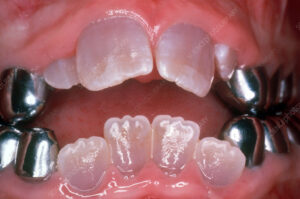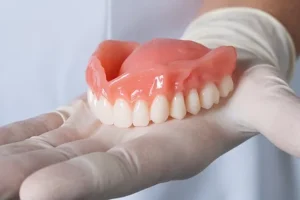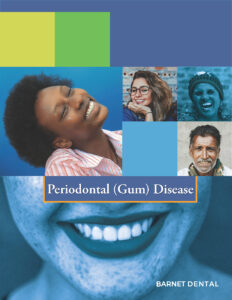Barnet Medical Center
Contact
Hours
- Monday: 9:00am – 9:00pm
- Tuesday: 9:00am – 6:00pm
- Wednesday: 9:00am – 9:00pm
- Thursday: 9:00am – 9:00pm
- Friday: 9:00am – 5:00pm
Barnet Medical Center, located in Albany, New York, is a leading healthcare institution renowned for its wide range of medical and dental services. The center is equipped with state-of-the-art facilities and cutting-edge technology, staffed by a dedicated team of highly trained animal medical professionals committed to delivering compassionate and innovative care to all patients.
Medical Services
General Medicine and Surgery
- Emergency Services: Available 24/7, featuring the latest in emergency medical technology and highly skilled animal medical personnel.
- Inpatient and Outpatient Rehabilitation: Comprehensive rehabilitation services including physical therapy, occupational therapy, and speech therapy.
- Advanced Surgical Care: Specializing in complex surgeries, including cardiovascular, neurological, and reconstructive surgery.
Specialized Departments
- Endocrinology: Comprehensive care for diabetes, thyroid disorders, and other hormonal imbalances.
- Gastroenterology: Advanced diagnostic and treatment options for digestive system disorders.
- Nephrology: Expert care for kidney diseases, including dialysis services and transplant preparation.
- Psychiatry and Mental Health: Wide range of mental health services including inpatient care, outpatient therapy, and crisis intervention.
Dental Services
Preventive Dentistry
- Comprehensive Oral Exams: Thorough examinations to detect early signs of dental issues.
- Fluoride Treatments: Preventive treatments to strengthen teeth and prevent decay.
Specialized Dental Care
- Endodontics: Expert root canal therapy to save and restore damaged teeth.
- Cosmetic Dentistry: Advanced procedures including teeth whitening, veneers, and smile makeovers.
- Oral Pathology: Diagnosis and treatment of diseases affecting the mouth, jaws, and related structures.
- Prosthodontics: Specialized care for restoring and replacing teeth with bridges, dentures, and dental implants.
Dentinogenesis Imperfecta
Dentinogenesis imperfecta (DI) is a hereditary genetic disorder that affects the development and formation of dentin, one of the primary tissues that make up teeth. It is characterized by abnormal dentin structure and composition, leading to weakened and discolored teeth that are prone to fracture, wear, and sensitivity. Dentinogenesis imperfecta is typically inherited as an autosomal dominant trait, meaning that a child has a 50% chance of inheriting the condition if one of their parents carries the mutated gene.
Here are some key points about dentinogenesis imperfecta:
- Types: Dentinogenesis imperfecta is classified into three main types based on clinical and genetic features:
- Type I: Also known as classic or hereditary opalescent dentinogenesis imperfecta, this type is the most common and severe form of the condition. It is characterized by translucent or opalescent (bluish-gray) teeth with bulbous crowns, narrow roots, and severe attrition (wear) of the enamel. Type I DI is caused by mutations in the DSPP (dentin sialophosphoprotein) gene, which encodes a protein involved in dentin formation.
- Type II: Also known as coronal dentinogenesis imperfecta, this type is characterized by similar dental abnormalities as type I DI but with less severe enamel involvement. Teeth may appear yellow-brown or amber in color and may be more resistant to fracture compared to type I DI. Type II DI is also caused by mutations in the DSPP gene.
- Type III: Also known as Brandywine type dentinogenesis imperfecta, this type is characterized by similar dental abnormalities as type II DI but with additional skeletal abnormalities such as short stature and joint laxity. Type III DI is caused by mutations in the DSPP gene as well.
- Clinical Presentation: Dentinogenesis imperfecta typically presents with a distinctive appearance of the teeth, including opalescent or discolored enamel, bulbous crowns, and attrition of the enamel exposing the underlying dentin. The teeth may appear translucent or amber in color, and the enamel may chip or fracture easily due to its weakened structure. Individuals with dentinogenesis imperfecta may also experience dental sensitivity, pulp exposure, and increased risk of dental caries and infections.
- Diagnosis: Diagnosis of dentinogenesis imperfecta is based on clinical and radiographic findings, including characteristic dental abnormalities such as opalescent or discolored enamel, bulbous crowns, and narrowed pulp chambers. Dental X-rays may reveal thin and bulbous roots, obliteration of the pulp chambers, and dentin defects such as taurodontism (enlarged pulp chambers) or pulpal calcifications. Genetic testing may be performed to confirm the diagnosis and identify the underlying genetic mutation responsible for the condition.
- Treatment: Treatment of dentinogenesis imperfecta focuses on preserving tooth structure, preventing complications, and improving oral function and aesthetics. Management options may include dental restorations such as crowns, veneers, or composite fillings to protect and reinforce weakened teeth, extraction of severely affected teeth followed by prosthetic replacement, endodontic therapy (root canal treatment) for teeth with pulp exposure or infection, and preventive measures such as fluoride therapy and meticulous oral hygiene to reduce the risk of dental caries and infections.
In summary, dentinogenesis imperfecta is a hereditary genetic disorder characterized by abnormal development and structure of dentin, resulting in weakened and discolored teeth that are prone to fracture, wear, and sensitivity. Early diagnosis and appropriate dental management are essential for preserving tooth structure, preventing complications, and improving oral function and aesthetics in individuals with dentinogenesis imperfecta.
Dentures
Dentures, also known as false teeth, are removable dental appliances designed to replace missing teeth and restore oral function, aesthetics, and facial appearance. They are custom-made to fit comfortably and securely in the mouth, providing support for the lips and cheeks and allowing individuals to chew, speak, and smile with confidence. Here's an overview of dentures and their key aspects:
- Purpose of Dentures:
- Dentures are used to replace missing teeth in individuals who have lost some or all of their natural teeth due to various factors, including tooth decay, gum disease, trauma, or age-related tooth loss.
- By replacing missing teeth, dentures help restore proper chewing and speaking abilities, improve facial aesthetics and symmetry, prevent sagging of the facial muscles, and enhance overall oral health and quality of life.
- Types of Dentures:
- Complete Dentures: Also known as full dentures, complete dentures are used to replace all of the teeth in the upper or lower jaw (or both jaws). They consist of a flesh-colored acrylic base that supports a complete set of artificial teeth designed to resemble natural teeth. Complete dentures are held in place by suction or denture adhesive and are removable for cleaning and maintenance.
- Partial Dentures: Partial dentures are used when some natural teeth remain in the mouth. They consist of a metal or acrylic framework that attaches to the remaining natural teeth using clasps or precision attachments. Artificial teeth are mounted on the framework to fill in the gaps created by missing teeth, restoring function and aesthetics.
- Implant-Supported Dentures: Implant-supported dentures are removable overdentures that are anchored in place by dental implants surgically placed in the jawbone. These dentures offer increased stability, retention, and chewing efficiency compared to traditional dentures, as they are securely attached to the implants and do not rely solely on the gums for support.
- Fabrication Process:
- The process of getting dentures typically involves several appointments with a dentist or prosthodontist (a specialist in restorative dentistry) to custom-design and fabricate the dentures to meet the individual's unique needs and preferences.
- During the initial consultation, the dentist will perform a comprehensive examination of the oral cavity, including impressions, measurements, and photographs of the teeth and surrounding structures.
- Based on these records, the dentist will create a treatment plan and fabricate a set of custom-made dentures that closely resemble the shape, size, and color of the natural teeth and gums.
- Once the dentures are fabricated, they are adjusted and fitted to ensure optimal comfort, function, and aesthetics. Additional adjustments may be made as needed to achieve the desired fit and appearance.
- Care and Maintenance:
- Proper care and maintenance are essential for prolonging the lifespan of dentures and ensuring optimal oral health:
- Daily Cleaning: Dentures should be cleaned daily using a soft-bristled brush and mild denture cleaner or soap. Avoid using abrasive cleaners or toothpaste, as they can damage the denture material.
- Overnight Soaking: Dentures should be soaked in a denture cleaning solution or water overnight to keep them moist and prevent them from drying out.
- Regular Check-Ups: Regular dental check-ups are important for monitoring the fit and condition of dentures, as well as for detecting any signs of irritation, infection, or changes in oral health.
- Denture Adhesives: Denture adhesives may be used to enhance the stability and retention of dentures, particularly for individuals with loose-fitting dentures or diminished jawbone support.
- Adjustment Period:
- It may take some time to adjust to wearing new dentures, especially if you are transitioning from natural teeth to dentures for the first time. Common issues during the adjustment period include:
- Soreness or irritation of the gums or oral tissues.
- Difficulty speaking or chewing initially.
- Increased saliva flow or minor changes in taste.
- With time and practice, most individuals adapt to wearing dentures and experience improved comfort, function, and confidence in their appearance.
In summary, dentures are custom-made dental prostheses that provide a practical and effective solution for replacing missing teeth and restoring oral function and aesthetics. Whether complete or partial, dentures offer a versatile and affordable option for individuals seeking to regain the ability to eat, speak, and smile comfortably and confidently. With proper care, maintenance, and regular dental check-ups, dentures can provide long-lasting benefits and contribute to improved overall oral health and quality of life.





